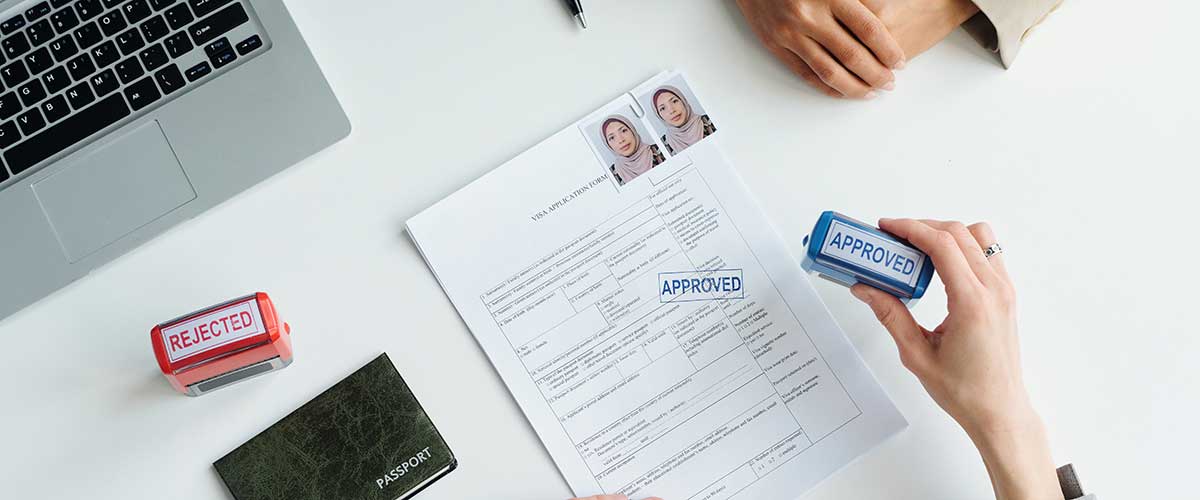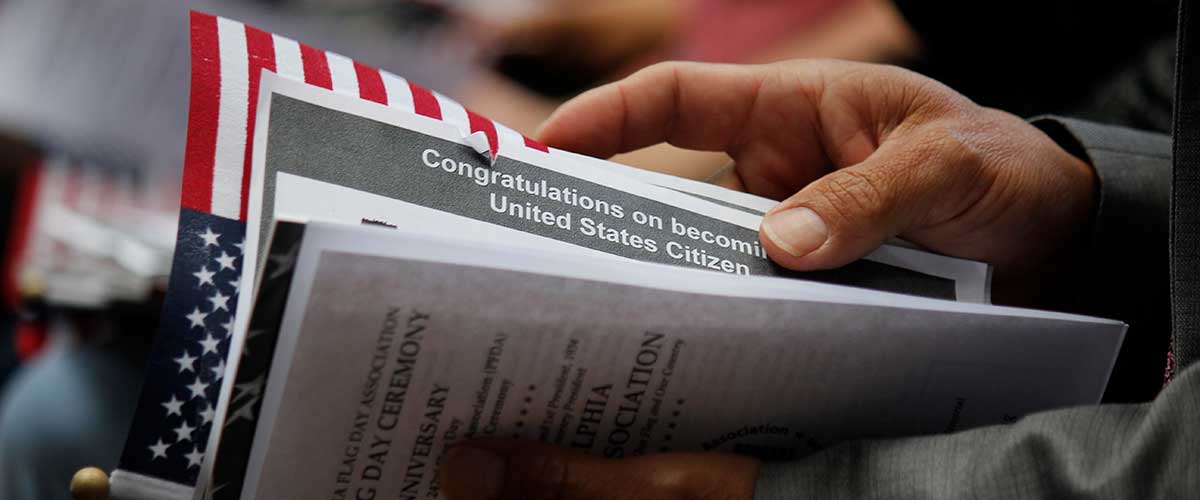Set Aside for Non-US Citizens: A Pathway to Residency and Citizenship
If you’re not a U.S. citizen and you’ve been convicted of a crime in Arizona, you already know how serious that can be. A conviction doesn’t just affect your freedom; it can impact your immigration status, ability to get a green card, and even your path to U.S. citizenship. The stakes are high, and for many, it can feel like one mistake has closed every door.
Arizona law offers a second chance through a legal process called a “set aside“. While it doesn’t remove the conviction entirely, it can make a critical difference when dealing with immigration authorities. For non-citizens hoping to stay in the U.S. or adjust their immigration status, a set aside can help present a more favorable case.
This article explains how the process works, how it can help in immigration matters, and why hiring an experienced attorney like Arja Shah gives you the best shot at a fresh start.
What is a Set Aside Under Arizona Law?
A set aside is Arizona’s version of post-conviction relief. Under Arizona Revised Statutes (ARS) § 13-905, a person who has completed all the terms of their sentence can petition the court to set aside their conviction.
If granted, the conviction still appears on your record, but it also shows that the judgment was set aside and the case dismissed.
This doesn’t mean your record is erased; it means the state acknowledges you’ve served your time and met all the conditions. For non-citizens, this can help show immigration officials that you’ve taken steps to correct past mistakes and that you no longer pose a public safety risk.
Set-asides can also restore civil rights, such as the right to vote, a key factor in many immigration decisions.

How a Set Aside Affects Immigration Status
Immigration law is federal, while set-aside laws are state-based. So it’s important to understand the limits. A set aside doesn’t automatically erase immigration consequences. However, it can improve your chances in several ways:
- Demonstrates rehabilitation: Immigration judges and officers often look at your behavior after the conviction. A set aside helps show you’ve moved forward.
- Reduces negative weight: While it doesn’t eliminate the conviction, it adds a positive note to your record that may help in discretionary decisions.
- Strengthens adjustment of status or naturalization applications: USCIS considers moral character. A set aside, especially for older or minor convictions, can help you demonstrate rehabilitation.
For example, someone applying for citizenship may be denied if they were convicted of a crime in the last five years. A set aside doesn’t change that timeline, but it can help argue that the person has reformed and deserves another look.
Attorney Arja Shah has seen firsthand how set asides can support immigration cases. By coordinating with immigration attorneys, she ensures her clients’ criminal records are presented in the best possible light.
Real-Life Examples of Set Asides Helping Non-Citizens
Example 1: DACA recipient seeking employment-based residency
A DACA recipient from Tempe was convicted of misdemeanor shoplifting (ARS § 13-1805) in his early twenties. Though he completed probation, the record still affected his ability to pursue employer-sponsored residency. After securing a set aside with Shah Law Firm’s help, he was able to show USCIS that he had rehabilitated. His attorney used the set aside to strengthen his moral character argument, and the petition was ultimately approved.
Example 2: Permanent resident applying for citizenship
A green card holder in Phoenix was convicted of misdemeanor domestic violence under ARS § 13-3601. Years later, when applying for citizenship, the old conviction became an issue. We helped her obtain a set aside, and the documentation helped her immigration lawyer respond to a USCIS request for evidence. She was later approved for naturalization.
Each situation is different, and a set aside is not a magic fix. But when used correctly, it can tip the scales in your favor.
Who is Eligible for a Set Aside in Arizona?
Arizona law under ARS § 13-905 allows most individuals with a criminal conviction to apply for a set aside, provided:
- All terms of the sentence have been completed (including probation, jail, fines, restitution).
- The offense is not excluded by law.
Crimes that cannot be set aside include:
- Dangerous crimes against children
- Certain sexual offenses
- Felonies involving deadly weapons
- Serious physical injury cases
When reviewing a petition, the court will look at:
- The type of offense
- How long ago did it happen
- Your behavior since then
- Any repeat offenses or new charges
If you’re unsure whether your conviction qualifies, Shah Law Firm can review your record and give you a clear answer. Attorney Arja Shah knows which courts are stricter and how to prepare a strong petition that addresses their concerns.
Take our FREE ELIGIBILITY TEST to see if you qualify.

The Legal Process: How to Request a Set Aside
The process to get a conviction set aside involves several steps. Here’s a simplified breakdown:
- Review eligibility: Make sure your conviction is eligible and all sentence terms are complete.
- Gather documentation: This includes court records, proof of sentence completion, and any letters of support.
- File the petition: Your attorney files a request with the court under ARS § 13-905.
- Await court review: The judge may rule based on the petition or set a hearing.
- Get a decision: If approved, the record will show the conviction was set aside and the case dismissed.
Although it’s possible to file on your own, having a lawyer ensures you meet all court requirements. More importantly, it ensures the petition is prepared in a way that benefits your immigration status.
FAQs About Set Asides and Immigration
- Does a set aside erase my conviction for immigration purposes?
No. The conviction still exists under federal law, but a set aside may improve how immigration officials view your record. - Will a set aside help with my green card application?
It can. While not a guarantee, it may strengthen your application by showing rehabilitation. - Can a set aside stop deportation?
Not directly. But in certain cases, it can support an argument for relief from removal. - Can I apply for a set aside and citizenship at the same time?
It’s best to secure the set aside first. Immigration officials will want to see the final court ruling. - Do immigration courts care about set asides?
Yes, especially in discretionary cases. While they don’t erase the conviction, they show positive behavior. - How long does the process take?
It varies by county, but most set-aside petitions take 30 to 90 days to process. - Should I tell USCIS about the set aside?
Yes. Always disclose convictions, but include the set-aside order to show the case was dismissed.
How The Shah Law Firm Can Help
 For non-citizens with past convictions, the path forward can feel uncertain. At Shah Law Firm, we understand how criminal and immigration law intersect and how to use Arizona’s set-aside law to your advantage.
For non-citizens with past convictions, the path forward can feel uncertain. At Shah Law Firm, we understand how criminal and immigration law intersect and how to use Arizona’s set-aside law to your advantage.
Attorney Arja Shah brings nearly 20 years of defense experience and has handled thousands of cases across Arizona. She knows what courts are looking for and how to draft petitions that maximize your chances of success. More importantly, she works one-on-one with every client to make sure your story is told fully and respectfully.
We work closely with immigration attorneys to ensure your set-aside petition supports your long-term goals. Whether you’re applying for DACA, a green card, or citizenship, we help you build a stronger case.
Call the Shah Law Firm at (602) 536-8866 or take our FREE ELIGIBILITY SURVEY to see if you are eligible. If you’re ready to take one more step toward residency or citizenship, we’re here to help you get there.
Start With Your Free 5-Minute Eligibility Survey
Take our free online eligibility test to find out what choices are available for your specific Arizona case and get started in the right direction to getting your rights back!




